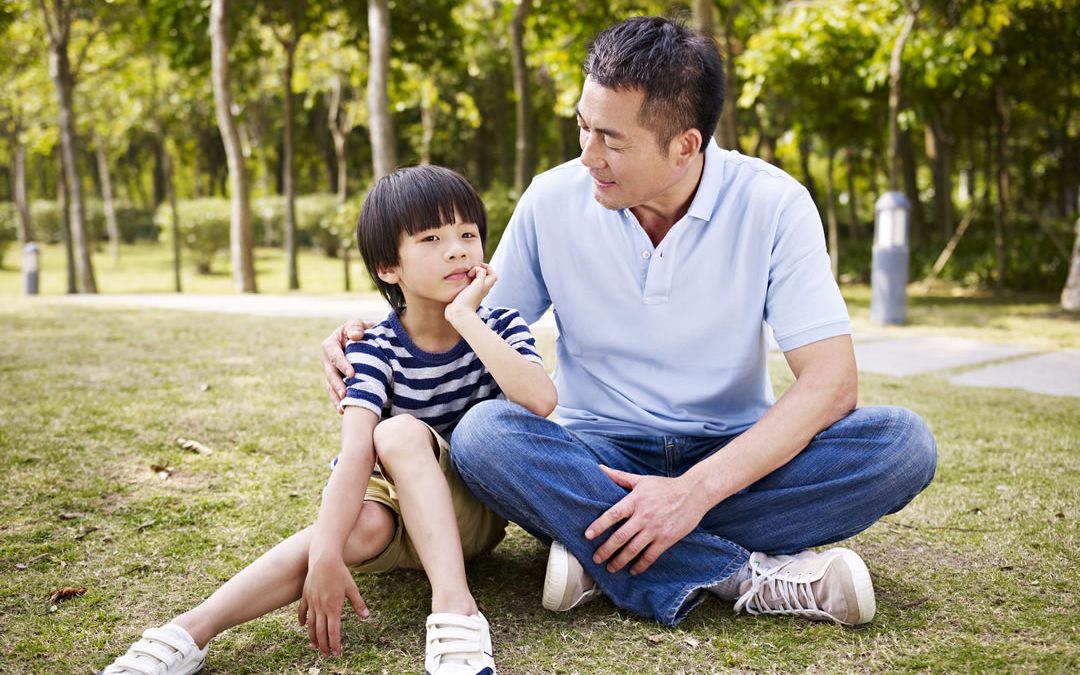How to Talk to Kids about Coronavirus based on an article by Pam Rutledge, Ph.D., media specialist.
In the midst of this pandemic, we are all trying to get answers makes us feel safer. This isn’t just true of adults. It’s true for kids, too. That’s why it’s important to talk with kids during times of crisis and uncertainty. Kids are dealing with their own social and academic uncertainties and highly tuned in to their own sources and worries. Kids hear a lot of what adults hear but it’s filtered and translated by young brains. This means kids are easy targets for misinformation and a lot of wrong information can sound believable and terrifying.
Kids from 3-7 are very likely to feel that they are somehow responsible for everything that goes wrong–or right, for that matter. They take words vert seriously, in fact, they sometimes believe that if they say it is so, it is so. They can believe their own lies and have difficulty at times telling reality from stories or TV or what they see on the internet. After seven, which is also the age of reason in the law, they can follow ideas about causation. They can also keep in mind what needs to be done in terms of keeping distance and wearing a mask, washing hands, etc. By the age of 12-14, most children can think about science and understand what it means to test something. Still, they don’t have the experience to know which variables might be most important.
How do you talk to your kids about the coronavirus when there are so many things we don’t know?
Here are 10 ideas:
- Start with your own anxiety. Do a quick check-in with yourself to see how you’re feeling. We communicate emotions just like we communicate information. Voice, movement, facial expressions and even being distracted all communicate our state of mind. Try not to transmit your own anxiety.
- Before you talk, figure out what is important for kids to know. What is age appropriate? Remember that they think differently than adults and worry about different things. They often feel they have powers to cause harm or to fix things when there is little they can do one way or the other.
- Listen to them. Begin with questions. Find out what they already know. This will give you a clue to what is age appropriate. See if they have the facts straight. This not only tells you what facts they possess but can give you a place to begin explaining the crisis at their developmental level. Correct their misinterpretations and build on what they already know.
- Find out what they are afraid of and address those worries. Fear not only makes people act crazy, it is hard on the immune system. Focus on the precautions your family and the community are doing to stay safe and healthy.
- Be honest. Don’t promise they won’t get sick. Promise which can deliver–that you will do everything in your power to keep them safe and that you will be there for them.
- Reassure them. For kids, it’s helpful to let them know that children seem to have very mild symptoms and the important thing is to stop it from spreading to people who are vulnerable.
- Explain why precautions like hand-washing matter. Tell them how viruses spread through coughing, sneezing or nose-blowing. Give them a silly song to sing that lasts 20 seconds (Google “20 second handwashing songs”). The alphabet song works if you sing loud and slow.
- Inspire them with stories of how people are working together, helping each other out.
- Keep the lines of communication open. The news is changing every day – be open to a continued conversation, especially when things affect them directly, like school closures and activity cancellations.
- Keep things as normal as possible. Don’t give up on mealtime or getting dressed in the morning because their school is closed. Many will have a chance to experience some form of distance learning “Classroom to Cloud” with Google classroom, Zoom or other tools. Make it an adventure.
You may need to address your own anxieties as well. Remind yourself that you are doing what you can to avoid getting sick. You are not alone. Reach out to friends and family that seem to be weathering the storm well. Eat what’s good for you; allow enough time for sleep; meditate or pray; sing, dance, take walks. If you don’t take care of your own mental health, it can make harder for the kids. They take their cues from you.
Look for uplifting and inspiring programs and performances on TV and the web. Take a break from the 24/7 news rooms. Feed your own sense of well-being. Caring for yourself will keep your own immune system strong. As my Yoga teacher used to remind us “You must take care of others from the energy that flows over the rim of your cup—not the dregs at the bottom.” To summarize: Honest talk, reassurance, good listening, keeping routines and handling your own anxieties will make all the difference for your kids.

